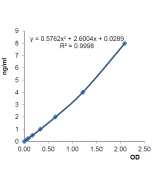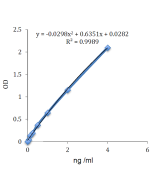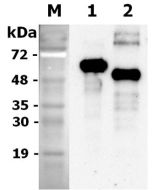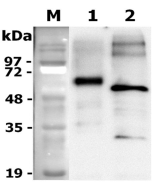Cookie Policy: This site uses cookies to improve your experience. You can find out more about our use of cookies in our Privacy Policy. By continuing to browse this site you agree to our use of cookies.
AdipoGen Life Sciences
Progranulin (rat) ELISA Kit
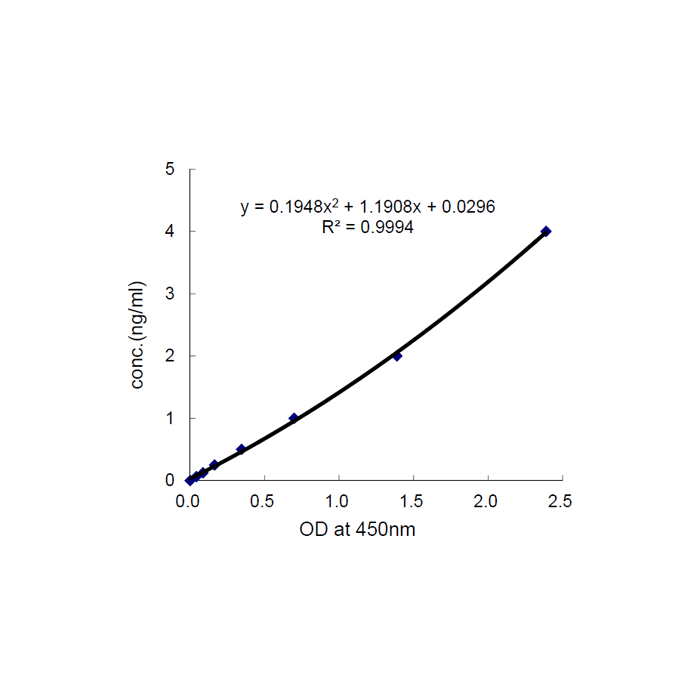
| Product Details | |
|---|---|
| Synonyms | Proepithelin; PEPI; PC Cell-derived Growth Factor |
| Product Type | Kit |
| Properties | |
| Application Set | Quantitative ELISA |
| Specificity |
Detects rat progranulin. Does not cross-react with mouse or human progranulin. |
| Crossreactivity | Rat |
| Quantity |
1 x 96 wells |
| Sensitivity | 40pg/ml |
| Range | 0.063 to 4ng/ml |
| Sample Type |
Cell Culture Supernatant Serum |
| Assay Type | Sandwich |
| Detection Type | Colorimetric |
| Shipping and Handling | |
| Shipping | BLUE ICE |
| Short Term Storage | +4°C |
| Long Term Storage | +4°C |
| Handling Advice |
After standard reconstitution, prepare aliquots and store at -20°C. Avoid freeze/thaw cycles. Plate and reagents should reach room temperature before use. |
| Use/Stability | 12 months after the day of manufacturing. See expiry date on ELISA Kit box. |
| Documents | |
| Manual |
 Download PDF Download PDF |
| MSDS |
 Download PDF Download PDF |
| Product Specification Sheet | |
| Datasheet |
 Download PDF Download PDF |
Progranulin (PGRN) is a widely expressed pluripotent growth factor which plays a role in processes such as development, wound repair and inflammation by activating signaling cascades that control cell cycle progression and cell motility. Its function in the central nervous system is of interest, as mutations in the PGRN gene were found in cases of frontotemporal degeneration (FTLD). In addition, PGRN has also been linked to tumorigenesis. New cutting-edge publications have shown that progranulin might be a biomarker not only for FTLD, but also for other types of Alzheimer‘s disease (AD). This new data even supposes the potential of progranulin to be a biomarker for MCI (Mild Cognitive Impairment), which would be a hallmark in AD research. Additionally, PGRN is described as a new ligand of TNF receptors and a potential therapeutic against inflammatory disease like arthritis.
- Adipocytokine Regulation and Antiangiogenic Activity Underlie the Molecular Mechanisms of Therapeutic Effects of Phyllanthus niruri against Non-Alcoholic Fatty Liver Disease: R.H. Al Zarzour, et al.; Nutrients 10, 1057 (2018)
- AZP2006, a new promising treatment for Alzheimer’s and related diseases: N. Callizot, et al.; Sci. Rep. 11, 16806 (2021)






